Great reads: personal finance
Ask a group of finance and accounting faculty at the University of Washington Foster School of Business to recommend a book on personal finance and you wouldn’t expect to get a list of “Get Rich Quick” titles. Nor did we. Instead, our selected scholars dug deeper, offering more discerning picks to improve your command of investing and comprehension of the financial markets, with a couple of unorthodox choices and one clear favorite:
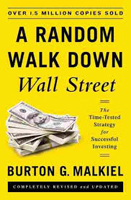 A Random Walk Down Wall Street: The Time-Tested Strategy for Successful Investing (Burton G. Malkiel)
A Random Walk Down Wall Street: The Time-Tested Strategy for Successful Investing (Burton G. Malkiel)
“A great book that explains why the average retail investor should hold low-cost index funds (as I teach in my core MBA class). Don’t waste your time and money picking stocks since even the pros have a hard time beating the market. I hold the market and I always sleep very well at night!”
– Thomas Gilbert, Assistant Professor of Finance.
“Malkiel discusses how capital markets work and explains in intuitive terms why they are as efficient as they are in a really approachable and interesting way.”
– Lance Young, Senior Lecturer of Finance and Business Economics
“A classic primer on individual investing, this book is a great read for beginners and more advanced investors alike. Malkiel walks through basic investing strategies in a non-technical and entertaining way. I’ve recommended this book to several family members who were starting out on their own investing.”
– Jennifer Koski, Associate Professor of Finance
“Malkiel is a Princeton economist and a long time Vanguard director. Read the book and learn how to become a true ‘Boglehead.’ Diversify, buy and hold, minimize transactions costs. It really is that simple.”
– Rocky Higgins, Professor of Finance
“A classic that provides a great overview over investing and keeping costs under control.”
– Stephan Siegel, Associate Professor of Finance and Business Economics
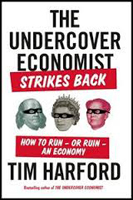 The Undercover Economist Strikes Back: How to Run—or Ruin—an Economy (Tim Harford)
The Undercover Economist Strikes Back: How to Run—or Ruin—an Economy (Tim Harford)
“Fiscal and monetary policy have become the topic of dinner table conversations since the financial crisis. Harford provides an easy to access book on the different theories on how to create a thriving economy. It’s detailed enough to be useful but not so nuanced as to overwhelm readers less familiar with macroeconomics.”
– Jonathan Brogaard, Assistant Professor of Finance
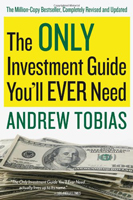 The Only Investment Guide You’ll Ever Need (Andrew Tobias)
The Only Investment Guide You’ll Ever Need (Andrew Tobias)
“I first read this book when it came out in 1978. I then gave it to several non-academics to read, including my mother. It is simple, usually correct, often funny, and free of the jargon designed to make readers feel stupid. These characteristics put it way out front of the class of personal finance books. While the world was much different 30 years ago, I am confident the recent new editions will be very helpful.”
– Ed Rice, Associate Professor of Finance and Business Economics
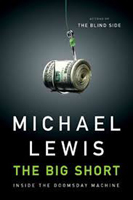 The Big Short: Inside the Doomsday Machine (Michael Lewis)
The Big Short: Inside the Doomsday Machine (Michael Lewis)
“Lewis takes a look at five investors who figured out that the housing market was overvalued in 2005 and the travails they faced in ‘betting’ against the market. This illustrates how difficult it is to find mispriced assets in a capital market and how hard it can be to actually profit from the mispricing if you do manage to find it.”
– Lance Young, Senior Lecturer in Finance and Business Economics
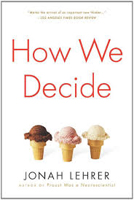 How We Decide (Jonah Lehrer)
How We Decide (Jonah Lehrer)
“A great book for someone who wants to understand the mental process underlying personal finance decisions.”
– Frank Hodge, Professor of Accounting
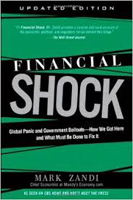 Financial Shock: Global Panic and Government Bailouts – How We Got Here and What Must Be Done to Fix It (Mark Zandi)
Financial Shock: Global Panic and Government Bailouts – How We Got Here and What Must Be Done to Fix It (Mark Zandi)
“Zandi identifies the origins of the subprime financial crisis—the most important financial event since the Great Depression—and examines the impact the crisis had on financial markets, the economy and households.”
– Frances Maloy, Lecturer of Finance and Business Economics
 The Wall Street Journal, Money, Bloomberg BusinessWeek
The Wall Street Journal, Money, Bloomberg BusinessWeek
“I really don’t read personal finance books, but I try to accumulate knowledge and ideas through these periodicals which do a pretty good job covering personal finance.”
– William Bradford, Professor of Finance
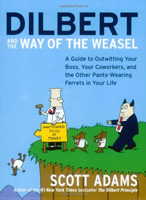 Dilbert and the Way of the Weasel (Scott Adams)
Dilbert and the Way of the Weasel (Scott Adams)
“I’m actually recommending125 words of this book by the creator of Dilbert. His Everything You Need to Know about Financial Planning is so sound that I teach it in my class and so concise that it fits in a book recommendation. Here’s the whole thing: ‘Make a will. Pay off your credit cards. Get term life insurance if you have a family to support. Fund your 401(k) to the maximum. Fund your IRA to the maximum. Buy a house if you want to live in a house and can afford it. Put six months’ expenses in a money market fund. Take whatever money is left over and invest 70% in a stock index fund and 30% in a bond fund through any discount broker and never touch it until retirement. If any of this confuses you, or you have something special going on (retirement, college planning, tax issues) hire a fee-based financial planner, not one who charges a percentage of your portfolio.’ ”
– Jonathan Karpoff, Professor of Finance
